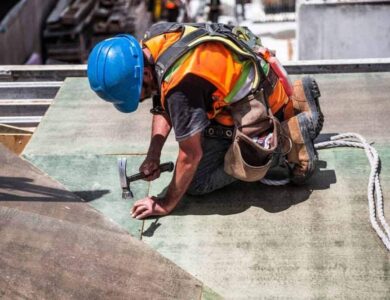Revolutionizing Building Automation: Insights into BAS and RCM Technologies

In the evolving landscape of building management, the advent of advanced Building Automation Systems (BAS) and Room Control Modules (RCM) is setting new benchmarks for operational efficiency, energy conservation, and occupant comfort. Technologies akin to BASRT-B and Siemens 547-323A exemplify the strides being made in this field, offering unparalleled control and automation capabilities that are transforming how buildings are managed and experienced.
Building Automation Systems (BAS): The Heart of Modern Buildings
Building Automation Systems serve as the central nervous system of modern structures, integrating various subsystems such as HVAC, lighting, and security into a cohesive, automated unit. This integration not only facilitates a more efficient operation but also provides a platform for real-time monitoring and control over a building’s environmental conditions and energy consumption.
- Enhanced Efficiency: By automating routine tasks and optimizing energy usage, BAS significantly reduce operational costs and environmental impact.
- Improved Occupant Comfort: Automated adjustments to lighting and temperature based on occupancy and time of day ensure optimal comfort for building occupants.
- Centralized Control: Centralized management of building systems through a single interface simplifies operations and enhances the ability to respond to issues promptly.
Room Control Modules (RCM): Personalizing the Occupant Experience
Room Control Modules, like the innovative solutions found in some of the latest models, further refine the capabilities of BAS by providing granular control over individual rooms or zones within a building. These modules allow for personalized settings, ensuring that the specific preferences of occupants are met, thereby enhancing satisfaction and productivity.
- Personalized Settings: Occupants can adjust lighting, temperature, and even window shades to suit their preferences, directly from an RCM interface.
- Energy Savings: By allowing for the precise control of environmental conditions in individual spaces, RCMs contribute to significant energy savings, reducing the operational footprint of buildings.
- Flexibility and Scalability: RCMs can be easily adapted to different spaces and requirements, making them suitable for buildings of all sizes and functions.
The Impact of Advanced BAS and RCM Technologies
The integration of technologies similar to BASRT-B and Siemens 547-323A into building automation strategies marks a significant leap forward in the field. The ability to not only automate but also customize and optimize the building environment offers a dual advantage of operational efficiency and occupant satisfaction. This is particularly relevant in scenarios where the specific needs of different users must be balanced with the overall energy goals of the building.
- Operational Insights: Advanced BAS and RCM technologies provide valuable data that can be used to further refine energy usage and operational strategies.
- Proactive Maintenance: Predictive analytics capabilities allow for the identification and resolution of potential issues before they escalate, reducing downtime and maintenance costs.
- Enhanced Security: Integration with security systems ensures a safer environment for occupants, with automated responses to potential threats.
Embracing the Future of Building Automation
As we look towards the future of building management, the role of advanced BAS and RCM technologies cannot be overstated. The operational efficiencies, energy savings, and enhanced occupant experiences they enable are fundamental to the development of sustainable, user-friendly buildings. For building managers and engineers, staying abreast of these advancements is crucial in leveraging the full potential of building automation to create spaces that are not only more efficient but also more adaptable to the needs of those who use them.
In embracing these technologies, professionals in the field of building automation are not just optimizing buildings; they are redefining the possibilities of what buildings can achieve in terms of efficiency, comfort, and sustainability.



